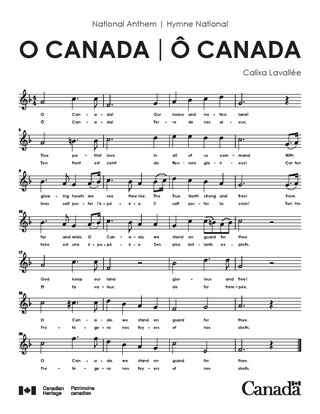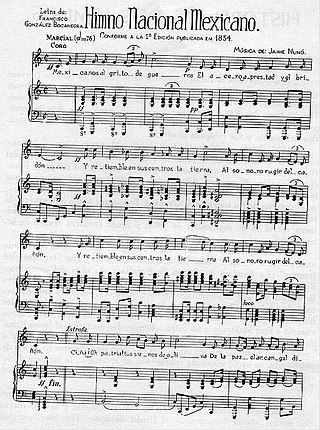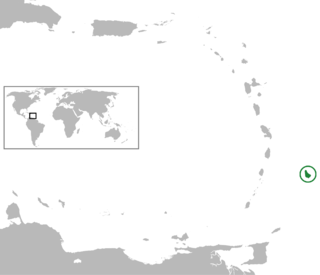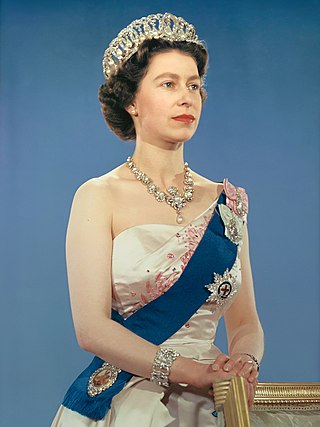Related Research Articles

"Advance Australia Fair" is the national anthem of Australia. Written by Scottish-born Australian composer Peter Dodds McCormick, the song was first performed as a patriotic song in Australia in 1878. It replaced "God Save the Queen" as the official national anthem by the Whitlam government in 1974, following an indicative opinion survey. The subsequent Fraser government reinstated "God Save the Queen" as the national anthem in January 1976 alongside three other "national songs": "Advance Australia Fair", "Waltzing Matilda" and "Song of Australia". Later in 1977 a plebiscite to choose the "national song" preferred "Advance Australia Fair". This was subsequently proclaimed the national anthem in 1984 by the Hawke government. "God Save the Queen" became the royal anthem, and is used at public engagements attended by the King or members of the royal family.
An anthem is a musical composition of celebration, usually used as a symbol for a distinct group, particularly the national anthems of countries. Originally, and in music theory and religious contexts, it also refers more particularly to short sacred choral work and still more particularly to a specific form of liturgical music. In this sense, its use began c. 1550 in English-speaking churches; it uses English language words, in contrast to the originally Roman Catholic 'motet' which sets a Latin text.

"God Save the King" is the de facto national anthem of the United Kingdom, one of two national anthems of New Zealand, and the royal anthem of the Isle of Man, Canada and some other Commonwealth realms. The author of the tune is unknown and it may originate in plainchant, but an attribution to the composer John Bull has sometimes been made.

"O Canada" is the national anthem of Canada. The song was originally commissioned by Lieutenant Governor of Quebec Théodore Robitaille for the 1880 Saint-Jean-Baptiste Day ceremony; Calixa Lavallée composed the music, after which French-language words were written by the poet and judge Sir Adolphe-Basile Routhier.

The "Mexican National Anthem", also known by its incipit "Mexicans, at the Cry of War", is the official national anthem of the United Mexican States. Its lyrics, composed by poet Francisco González Bocanegra after a Federal contest in 1853, allude to historical Mexican victories in battle and cries of defending the homeland. In 1854, Jaime Nunó composed the music to the lyrics after a request from González. The national anthem, consisting of ten stanzas and a chorus, effectively entered into use on September 16, 1854.

"La Borinqueña" is the official anthem of Puerto Rico.

"L-Innu Malti" is the national anthem of Malta. It was written in the form of a prayer to God. Officially adopted in 1964 upon independence from the United Kingdom, the music was composed by Robert Samut, and the lyrics were written by Dun Karm Psaila.

"Aegukga", often translated as "The Patriotic Song", is the national anthem of South Korea. It was adopted in 1948, the year the country's government was founded. Its music was composed in the 1930s and arranged most recently in 2018; its lyrics date back to the 1890s. The lyrics of "Aegukga" were originally set to the music of the Scottish song "Auld Lang Syne" before Ahn Eak-tai composed a unique melody specifically for it in 1936. Before the founding of South Korea, the version set to the music of "Auld Lang Syne" was sung, as well as when Korea was under Japanese rule by dissidents. The version set to the melody composed by Ahn Eak-tai was adopted as the national anthem of the Korean exile government, which existed during Korea's occupation by Japan from the early 1910s to the mid-1940s.

"Stand and Sing of Zambia, Proud and Free" is the national anthem of Zambia. The tune is taken from the hymn "Nkosi Sikelel' iAfrika", which was composed by Xhosa composer Enoch Sontonga, in 1897. The lyrics were composed after Zambian independence to specifically reflect Zambia, as opposed to Sontonga's lyrics, which refer to Africa as a whole.

The "Brazilian National Anthem" was composed by Francisco Manuel da Silva in 1831 and had been given at least two sets of unofficial lyrics before a 1922 decree by president Epitácio Pessoa gave the anthem its definitive, official lyrics, by Joaquim Osório Duque-Estrada, after several changes were made to his proposal, written in 1909.
"¡Salve, Oh Patria!" is the national anthem of Ecuador. The lyrics were written in 1865 by poet Juan León Mera, under request of the Ecuadorian Senate; the music was composed by Antonio Neumane. However, it was not officially adopted by the Congress until September 29, 1948.

The flag of Barbados was designed by Grantley W. Prescod and was officially adopted to represent Barbados at midnight on 30 November 1966, the day the country gained independence.

The National Anthem of Pakistan, also known by its incipit "The Sacred Land", is the national anthem of the Islamic Republic of Pakistan and formerly the Dominion of Pakistan. First composed by Ahmad G. Chagla in 1949, lyrics in Persified Urdu were later written by Hafeez Jalandhari in 1952. It was broadcast publicly for the first time on Radio Pakistan on 13 August 1954, sung by Jalandhari himself and officially adopted on 16 August 1954 by the Interior Ministry of the Government of Pakistan.

The following is an alphabetical list of topics related to the nation of Barbados.

"Menıñ Qazaqstanym" is the national anthem of Kazakhstan since 7 January 2006, replacing the previous anthem first used upon independence in 1991.
On 30 November 2021, Barbados transitioned from a parliamentary constitutional monarchy under the hereditary monarch of Barbados to a parliamentary republic with a ceremonial indirectly elected president as head of state. The prime minister remained head of government while the last governor-general, Dame Sandra Mason, was elected as the country's first president on 20 October 2021, and took office on 30 November 2021.

The monarchy of Barbados was a system of government in which a hereditary monarch was the sovereign and head of state of Barbados from 1966 to 2021. Barbados shared the sovereign with the other Commonwealth realms, with the country's monarchy being separate and legally distinct. The monarch's operational and ceremonial duties were mostly delegated to her representative, the governor-general of Barbados.
Irving Louis Burgie, sometimes known professionally as Lord Burgess, was an American musician and songwriter, regarded as one of the greatest composers of Caribbean music. He composed 34 songs for Harry Belafonte, including eight of the 11 songs on the Belafonte album Calypso (1956), the first album of any kind to sell one million copies. Burgie also wrote the lyrics of the National Anthem of Barbados. To date, songs penned by Irving Burgie have sold more than 100 million copies worldwide.

The Constitution of Barbados is the supreme law under which Barbados is governed. The Constitution provides a legal establishment of the Government of Barbados, as well as legal rights and responsibilities of the public and various other government officers. The Constitution which came into force in 1966 was amended in 1974, 1980, 1981, 1985, 1989, 1990, 1992, 1995, 2000, 2002, 2003, 2005, 2007, 2009, 2010, 2018, 2019, 2020 and 2021. The 1966 document succeeds several other documents concerning administration of Barbados. One of them, the Barbados Charter, is discussed in the present Constitution's Preamble. Prior statutes were created for the administration of Barbados as a colony. As a former English and later British colony, the Constitution is similar to those of other former Commonwealth realms, yet distinctly different in the spirit of the Statute of Westminster.
References
- 1 2 3 4 5 6 7 8 "The National Anthem". Government of Barbados . Retrieved 2022-04-15.
- ↑ "Barbados Independence Celebration, 30 November 2015". Distinctly Birmingham. Retrieved 2022-04-15.
- ↑ "Independence". The Barbados Parliament . Retrieved 2022-04-15.